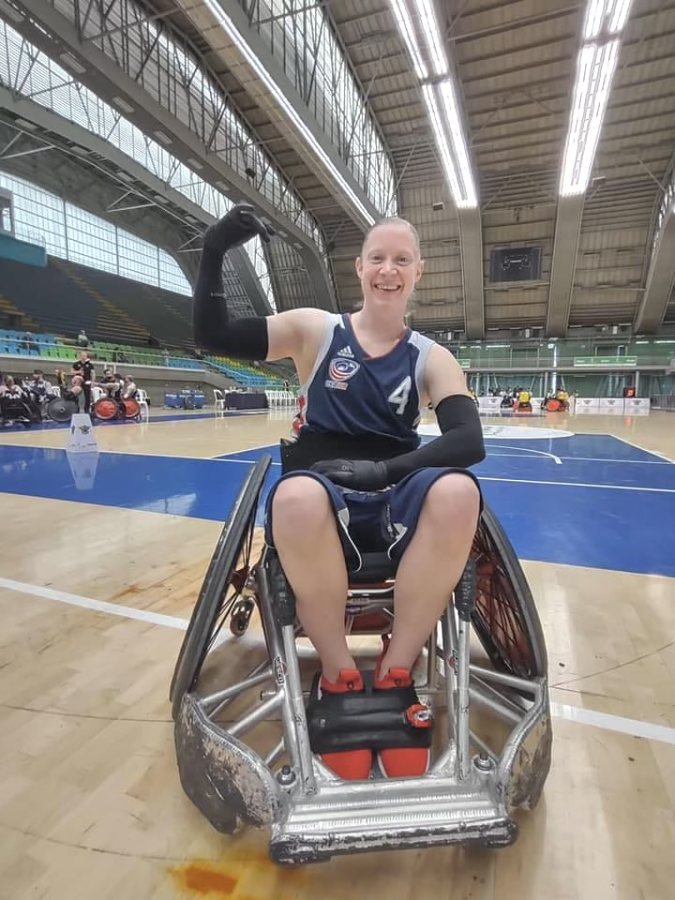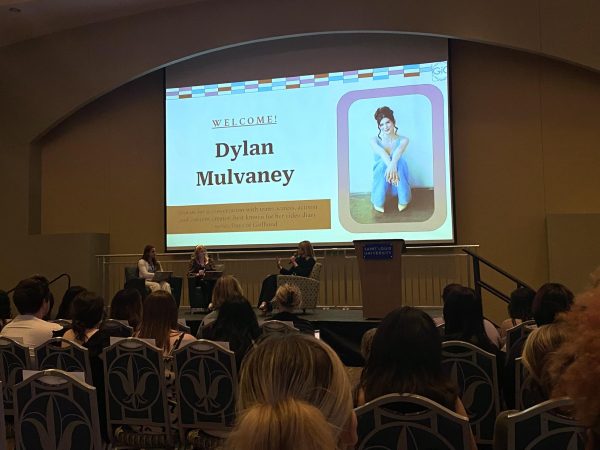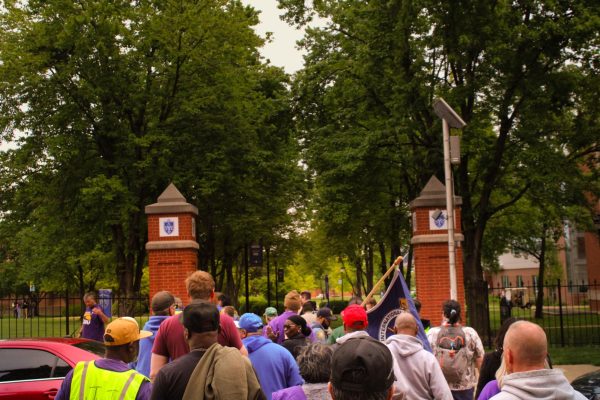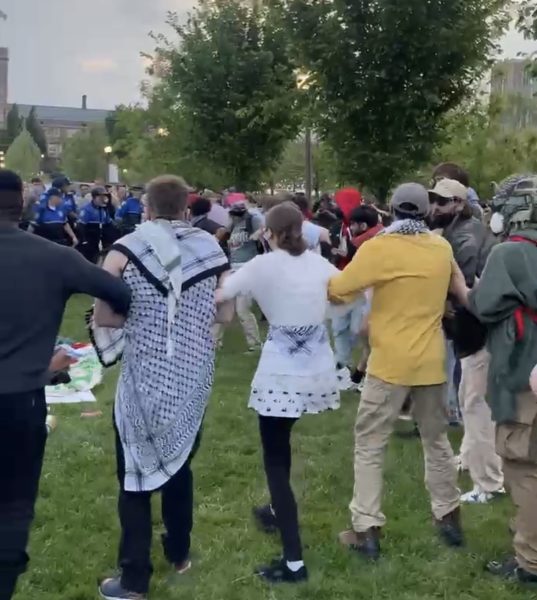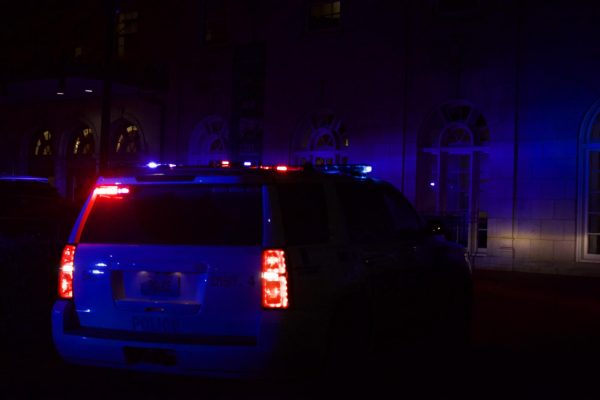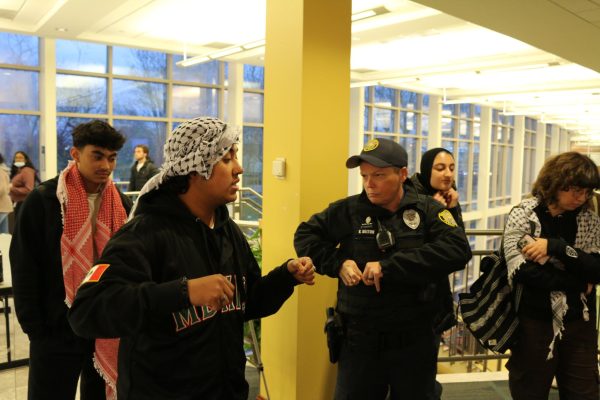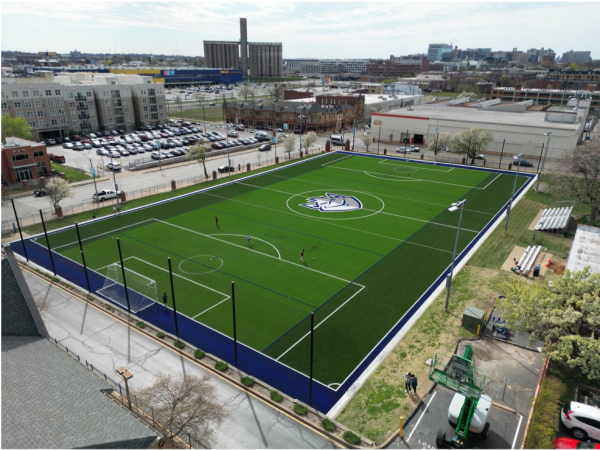SLU’s Sarah Adam: The Next Paralympic Athlete?
Professor Vies for Paris 2024
Professor Sarah Adam, O.T.D. hopes on taking a trip to Paris in summer 2024, but she’s not planning a vacation. She’s competing for a spot with
Team USA’s wheelchair rugby team.
“It’s certainly an honor. It’s a fun reason to travel around the world,” she said.
This season, she’s been named to the 16-person training squad; of those on the squad, Adam and teammate Liz Dunn are the only women. The two could be the first women to represent Team USA in the unisex sport as 12 individuals are selected to compete at the Paralympic Games.
Adam said SLU has been “hugely supportive” of her Paralympic journey, which includes taking time off for training camps in Birmingham, Ala., and competitions, sometimes internationally. Before her tryouts, members of the Occupational Therapy program decorated her office and gave her a banner signed by all students, and upon her return, the staff greeted her by chanting “U-S-A”.
“I lucked out. SLU has been absolutely phenomenal,” Adam said. “And it’s great to have that support, because I’m not sure that I necessarily would get that from many other jobs.”
She trains at SLU’s Simon Recreation Center, and said that it has a lot of wheelchair-accessible equipment, which ensures she can comfortably exercise for competition at a high level.
“They met with me early on to see if there’s anything that they could do to help facilitate my workouts, or any other pieces of equipment, not just for me, but for if there’s other people on campus that have a disability that want to access those machines,” Adam said.
Her schedule is “pretty darn busy,” she said, as Adam’s days consist of her arriving to campus in the morning to teach until 5 or 6 p.m., going to the rec center and exercising for about two hours (one spent on the track or basketball court, another in the weight room), and getting home by 9 p.m. to make dinner and go to sleep. Sometimes, she’ll work out twice in one day.
“And then, I live alone, so you still have to add in having to do all the household chores and grocery shopping and cooking and laundry and all that,” Adam said. “It keeps me pretty busy, but I don’t mind.”
The wheelchair rugby team most recently won the 2022 Americas Championship in Medellín, Colombia, held from March 9-12. Adam said the team’s biggest tournament will be the World Championships, held in Vejle, Denmark from Oct. 10-16 and which will count as a Paralympic qualifying match.
On campus, Adam has been invited to talk with classes about her “lived experience as a person with a disability,” which she appreciates doing in order to dispel “inaccurate stereotypes and misconceptions and whatnot.”
“I think [a misconception is] that we’re fragile. And that’s part of why I like murderball or wheelchair rugby, because it shows we’re not fragile. We’re going in and we’re hitting each other as hard as we possibly can and trying to flip them over, and working our butts off day in and day out to get better,” she said.
Adam mentioned that students have recognized her at the gym, highlighting that she tries to use such experiences as a teachable moment.
“I’m certainly not a celebrity or anything like that, but it is a fun way to engage students and teach them about areas that they maybe had never thought about with adaptive sports and spreading our message around on the campus,” Adam said. “I see people that are watching me working out. Their eyes get really big to see how fast we can go in those chairs and training hard just like any other able-bodied athletes, which is really what I’m hoping to show.”
While she was a graduate student at Washington University in St. Louis, Adam, then able-bodied, volunteered as a coach for wheelchair rugby players. Soon afterward, she was diagnosed with multiple sclerosis, and over the next few years lost most function in her legs.
Already acquainted with members of what she called a tight community, Adam re-entered the world of wheelchair rugby as a competitor. The sport, and the friendships she has made through it, have helped her immensely, she emphasized.
“My wheelchair is my freedom. It helps me get around easily. It’s not a constraint for me,” Adam said. “Same thing for adaptive sports: that’s been my freedom. It’s helped me now to go travel the world, and stay healthy and helps my MS.”
Adam hopes that by being visible on campus, she raises awareness of adaptive sports and tolerance of disabled athletes.
“I’m hoping to show people the power of adaptive sports, whether physical health, the camaraderie or the peer support, but also that we’re not really all that different from any of the able-bodied athletes. We play sports in a different way—that’s it,” she said.
Your donation will support the student journalists of Saint Louis University. Your contribution will help us cover our annual website hosting costs.


